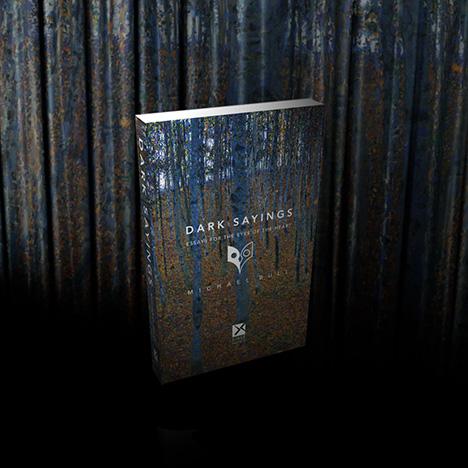Bring Light to your Theology with Dark Sayings

It is truly breathtaking how deeply connected and coherent all of Scripture is, all of life is, when you can experience it in all of its divinely inspired architectural beauty and construction.
A review by Jared Leonard.
DARK SAYINGS begins by identifying the multi-tiered problems of Western Christianity’s theology, from the safe-house cliques of the congregation on up through to the heights of academia’s ivory tower. Armed with the awareness of just how shallow the last couple of centuries have been, and what that lack of biblical depth has produced, the reader is primed to have their eyes opened to the marvelous beauty and richness contained in even just a single verse of Scripture. Don’t get me wrong here, though; there have been some really great works of theology and practice throughout the decades, but very little of that has found its way into the bones of believers.
Holistic is not a word I would use often, or at all, really, to describe a book that self-identifies as contemplative theology, even if it is painted with “neo noir” strokes, as Mr. Bull colors this collection in the opening words of the introduction. But Dark Sayings is. And I think the author can’t help it any more; it is the (super)natural outworking of consistently applying the interpretive methodology of the Bible Matrix. The matrix permeates his thought and colors his vision in all the right theological and biblical ways. It is truly breathtaking how deeply connected and coherent all of Scripture is, all of life is, when you can experience it in all of its divinely inspired architectural beauty and construction.
Building on the introduction, the essays are broken out into five sections, each with an overarching theme that aligns with Mr. Bull’s previous work in applying the shape of the Bible Matrix. If the matrix is not something you are familiar with, you can still glean a lot from these essays, though some of the connections may seem like a stretch, or tenuous at best. I would encourage you to press through; like the Bible itself, this will be a book that requires multiple readings for full effect. Also, the last five chapters and the closing conversation alone are worth the price and effort of this book.
Future generations are going to be mining Mike’s work for a long, long time. Like Martin Bucer, he may not ever have the name recognition of a John Calvin, or a Philip Melancthon, but the coming “greats” will be indebted to his laying the foundations, of which Dark Sayings is another stone, for the next few centuries of real theological progress.

Dark Sayings: Essay for the Eyes of the Heart is available now.

























